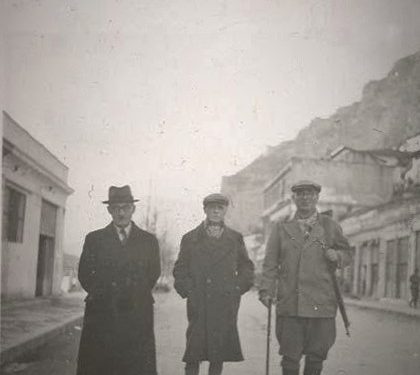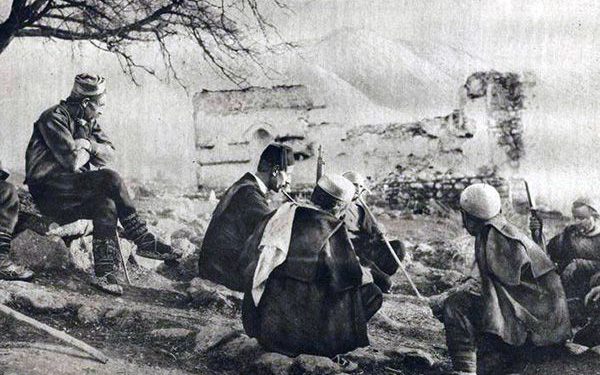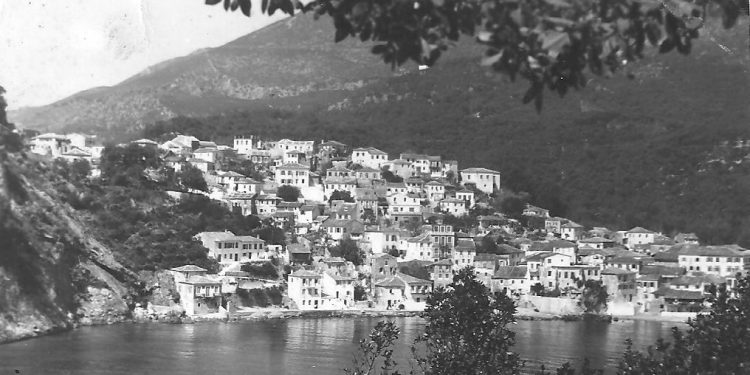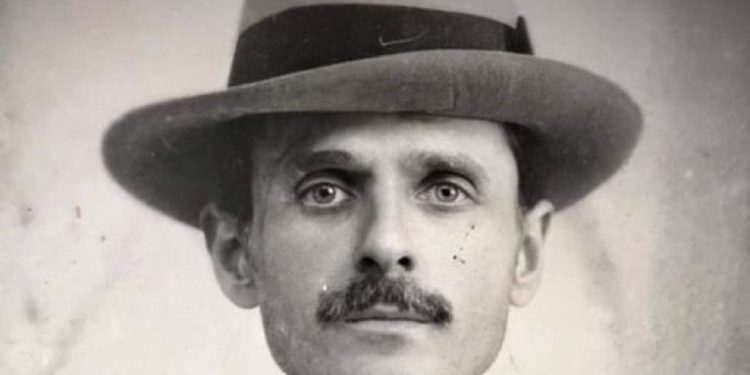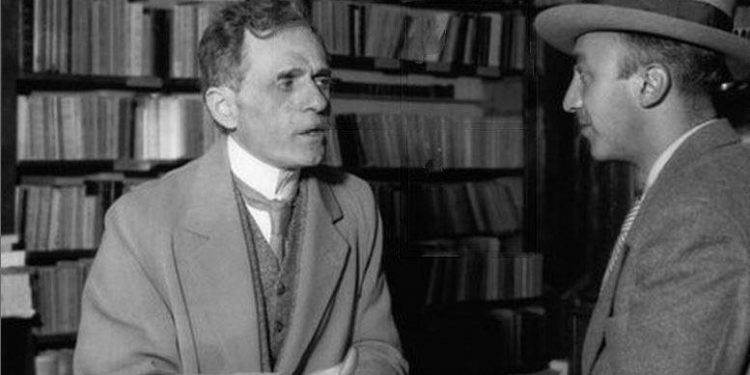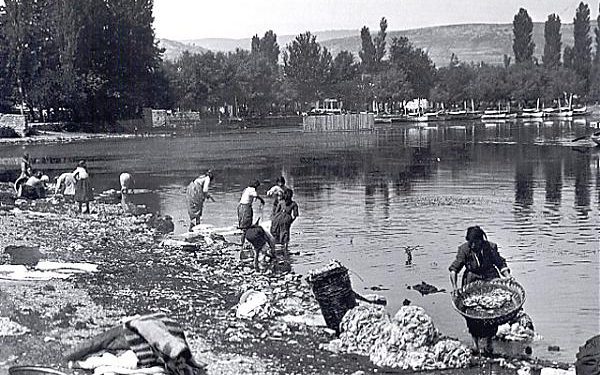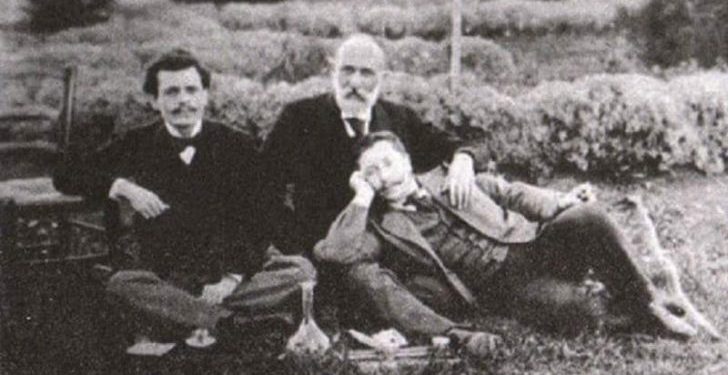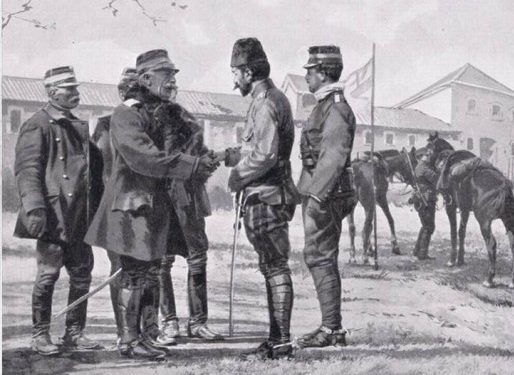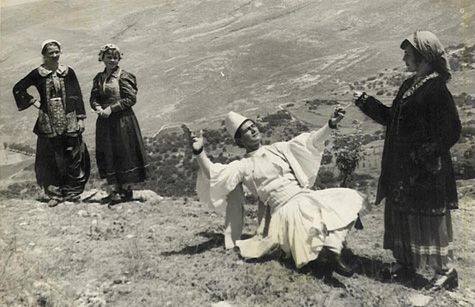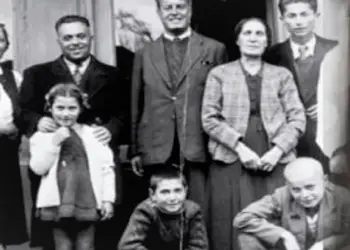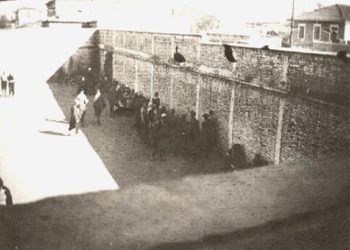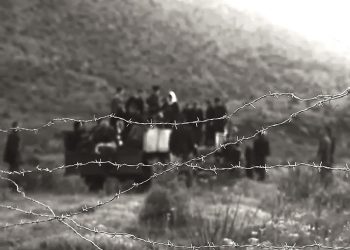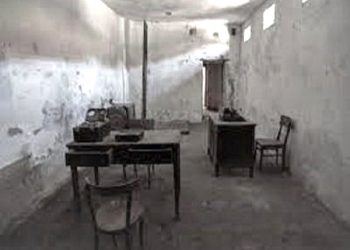Prof. Dr. Luan MALLTEZI
Memorie.al From May 1919 to October 1922, a fierce war took place between Greece and the Turkish National Movement led by Mustafa Ataturk. The Greeks undertook this war driven by the Western Allies; the Prime Minister of England Lloyd George had promised Greece Anatolia which had been part of the Byzantine Empire before the Ottoman conquest; Greek forces were dropped on Smyrna (modern-day Izmir) on May 15, 1919, and took control of parts P and V of Anatolia, the cities of Manisa, Balikesir, Aydin, Kütahya, Bursa, and Eskişehir.
The Greeks were defeated in 1921 by Ataturk at the Battle of Sakarya; the war ended in 1922 with the recapture of Izmir by the Turks. The Greeks returned to pre-war borders, leaving Turkey Eastern Thrace and Western Anatolia. After the war the parties signed the Treaty of Lausanne between them; the treaty was signed on January 30, 1923 by Ismet Inony; Greece recognized the independence of the Turkish Republic and its sovereignty in Anatolia, Istanbul and Eastern Thrace. The treaty marked the exchange of the Greeks of Anatolia with the “Turks” of Greece.
Three days later the Albanian government established relations with the Greek government; On February 3, 1923, Foreign Minister Pandeli Evangeli announced the appointment of Greek Foreign Minister Mit’hat Frashëri as Minister Plenipotentiary to Greece. Mit’hati was sent to Athens as “Envoy with a Special Mission to establish relations with Greece”. Mit’hat’s appointment as Minister Plenipotentiary in Athens was well thought out by the Albanian government. Mit’hati was the personality who met the requirements for appointment to such a delicate post as Powerful Minister in Greece; Mit’hati was well acquainted with the crimes committed by the Greeks in the south in the years 1913-1914, he was well acquainted with the history of the Greek language and literature, he was well acquainted with a range of foreign languages (Italian, French, German, English); Mit’hati had represented Albania at the Paris Peace Conference, he had published a series of articles in various European magazines about Albania.
The appointment of Mit’hat Frashëri Minister Plenipotentiary in Greece was greeted unanimously by the Albanian youth, praise for his appointment was given by the newspapers “Dielli”, “Politika”, “Shqiptari i Amerîkê” as well as the Greek newspapers “Nea Imera” and “Embros”
Mit’hati went to Athens with the desire and full will to establish relations between the two countries, strengthen ties and cooperation between them. Mit’hat Frashëri expressed this wish in the first meeting with the Greek Foreign Minister.
“The ideas of war are now gone,” Mit’hati told him. “Now is the time to work for the material prosperity of the Balkans.”
Mit’hati believed that such a predisposition would be found even in the Greek authorities, the King, the Prime Minister, the Foreign Minister, but time showed the opposite! The Greek authorities were not interested in having good relations with Albania, the Greeks began to deport to Anatolia Muslim Albanians settled in their lands in Greece. The Greeks were interested in robbing Muslim Albanians of their homes and property. Mit’hati immediately informed Tirana about the expulsion of Muslim Albanians in Anatolia:
The mayor of Ioannina – Mid’hati reported – had published in a circular that the Muslim Chams would be exchanged with the Greeks who would return as refugees from Turkey. Mit’hati also informed Tirana that the Greek MP Bakëllbashi had stated in the newspaper that he would go to Epirus to settle the Greek refugees who would return to Greece. Mit’hati informed the Albanian Minister that these were the positions of the Greek government on the forcible expulsion of the Muslim population of Epirus; Greek authorities, he wrote, was forcibly relocating Greek refugee Muslims returning to Anatolia from the lands and homes of Muslim Albanians.
Mit’hat Frashëri stated this attitude to Prime Minister Venizelos. Reporting to Tirana the official meeting with him, Mit’hati wrote on January 25, 1924 that: “Despite his sweet words, with all his smiles and assurances, I get out of this baking with the dormitory (conviction-red), that Venizelua has decided to escape from the Albanians, by driving them away and robbing them of their property ”.
Such an attitude of the Greek side was understood by the representatives of the Diplomatic Corps accredited in Athens. “The Greeks know very well who the Turks are and who the Albanians are,” the French ambassador told Mit’hat, “but they want to rob the Albanians of their property, so they want to drive them out.” “Venizello – the ambassador added – is no less Greek than other Greeks.”
The attitude of the Greek authorities to the forcible expulsion to Anatolia, had greatly disturbed the Albanians of the Muslim faith. A representative of the Cham population had met the Foreign Minister and the Greek Prime Minister but had not received any answer as to what would be done with them. A petition signed by 130 people by Filati was sent in July of that year to the government in Athens where they declared that they did not want to leave the country as Turks. Likewise, 173 people from Ajdonati had gone to Athens to meet the Turkish commission ë .In March (1924) Mit’hati informed official Tirana that six representatives from Chameria had come to Athens to inquire about their problem.
Dozens of telegrams were also sent to the Greek authorities on behalf of the population of Filati, Margellic, Ajdonat.
“On behalf of the Albanians of Macedonia” a delegation of residents had come from Thessaloniki to Athens, where they had stayed for four months in a row to inquire about their fate.
In July 1923, Mit’at Frashëri informed Tirana that the Greek authorities had confiscated the property of Albanians from all villages, considering Albanians as Turks. In order to persuade the Muslim Chams to flee to Turkey, the Greek authorities had taken over the Muslim clergy, imams and Albanian muftis.
On October 31, 1923, 22 representatives of the cities of Chameria, Margellic, Filati, Paramithia, Gumenicësi demanded the Albanian government to intervene with the Turkish government not to accept in Turkey Albanians deceived by such clerics. In January 1924, Mit’hati reported that in Arpica the Greek authorities had sheltered more than 100 Greek families from Anatolia: vegetables, cut down trees and trees; the lords of the houses (i.e. the Muslim-red Chams) have no produce. “Some rapists wanted to stop the robbery of refugees, but the government had arrested five people, who sent them to Margellic, Parga, and Preveza from prison to prison for 15 days.”
Mit’hati informed Tirana that authorities were using thieves and notorious criminals to force Albanians to flee to Anatolia. “The thief Chile Mastora and his friend Kiamo – Mit’hati announced in May 1924 – are terrorizing the villages of Paramithia in order to force the Albanians to flee and they are doing this in front of the Greek authorities.” Authorities in turn arrested, imprisoned, and ill-treated men opposed to deportation to Anatolia.
In April 1924, Mit’hati announced that Musa Demi, Haki Musa, Mehmet Zekeri, etc. had been arrested; these – he writes – were arrested on March 27 and sent to Ioannina prison. “Authorities – writes Mit’hati – want to terrorize and eliminate Albanians who insist on staying in Greece”
In March 1924 Mit’hati announced that: “The survival of the Albanians in Greece had become impossible. How can a man live when his house has been taken away, when grain, cattle, animals have been confiscated from him, when foreigners have become masters in his fields and gardens?
In the face of the risk of deportation to Anatolia, Albanians sent petitions to the Greek government expressing Albanian affiliation and their willingness to stay on their own lands and properties, the population denouncing the arrests and imprisonments made on Albanian representatives. In an effort to find support, the Albanian population sought the protection of the mother country. The Cham population established close ties with Mit’hat Frashëri and informed him in general about what was happening to their community. Albanians alerted him to violence by Greek authorities, the gendarmerie and the police.
On the basis of information received from the population, Mit’hat Frashëri held meetings with the Greek authorities, the Foreign Minister and the Greek Prime Minister: he asked them to respect international acts and conventions for the protection of the freedoms and rights of Muslim Albanians in Greece. Mit’hadi had submitted 200 NOTES to the Greek Ministry of Foreign Affairs, for the attitude towards Muslim Albanians in Greece. According to Mit’hat, the Foreign Ministry in Albania had a “complete dossier on the Cham issue, the policy used by the Greek authorities” for the expulsion of Albanians in Anatolia, the looting of their property and assets.
Faced with the Greek authorities’ stance on the forcible expulsion of Albanians in Anatolia, Mit’hati suggested to the Albanian government to denounce the Greeks in the Hague tribunal for crimes against
Albanian population He suggested that a memorandum be drawn up at the Conference of Ambassadors or at the Hague Tribunal to seek redress from Greece for the 300 villages devastated by it in 1914. Such a memorandum suggested that it be filed against Serbia for the 200 burned and ruined by them in 1920 and 1921”.
According to him, the throwing of Serbia and Greece in the Hague tribunal should have been done to protect state interests. Mit’hati judged that a press campaign should be carried out “to enlighten the opinion of the Albanians themselves and the civilized nations” about what was happening to the Muslim Albanians of Epirus. This opinion
Our minister suggested it to official Tirana on March 23, 1925. According to him, this should be done to “have a weapon in hand to fight the new claims of our neighbors”.
He turned to this suggestion because he was finding that Greeks and Serbs were adding claims to Albanian lands every day; they tended to see Albania as a Yugoslav or Greek province, which today or tomorrow was destined to join “the great Hellenic and Serbian body”. According to Mit’hat, the Albanian population deported to Anatolia was in a very difficult situation, a good part of them were dying of starvation and difficult living conditions…! In the face of this situation, Mit’hati suggested in January 1924 to the Albanian authorities the settlement of the Chams in Albania and the expulsion to Greece of the Greek minority living in Albania, but the Albanian state did not appropriately see his attitudes.
Mit’hat Frashëri’s attempts as a Powerful Minister in Athens to stop the Greek authorities from forcibly deporting the Albanian population to Turkey were unsuccessful. Balancing the situation created, our Minister Fuqi-Plote in Athens pointed out to the Albanian Minister that: “In 1922 there were 100,000 Muslim Albanians in Greece gre the Greek authorities had managed to expel 35,000 from the Prefecture of Kostur and Florina and 20 thousand from Ioannina, Preveza, Parga ”.
In September 1925, Mit’hati informed Tirana that the “Hellenic policy” for the expulsion of the Muslim element from Epirus and Macedonia had begun “since the day after the Balkan war.” This policy was implemented “by bandits of thieves, and the conduct of civilian and military authorities.” This policy took on a new color after the 1920s weather. Regarding this he writes:
- 35,000 Albanians from Florina and Kostur were expelled with sticks and beaten by the Greek gendarmerie.
- Contrary to the statement of the Greek delegate in Lausanne, Mr. Calcamanos, in January 1922 were inadvertently expelled and with wood:
- All Albanians of Preveza.
- A large part of the Albanians of Konica.
- A majority of Albanians in Chameria themselves.
- Muslim Albanians in Epirus or Macedonia have no right to sell, rent or borrow money from their property.
- No house was left free: (Greeks) everywhere inadvertently slaughtered refugees by throwing homeowners into the streets. Many houses remain empty; the Greek government installs refugees in the homes of Albanians.
- The refugees, with the permission of the authorities, rob the Albanians’ gardens, olive groves, figs, vineyards, and cereals.
- The property plundered to date amounts to 2,700,000 napoleons of gold.
- The doors of justice are closed for Albanians, the beaten, robbed, imprisoned, are daily bread for them.
The purpose of these behaviors is to force Albanians to flee Greece and plunder their property.
- Albanians in Greece do not have.
Drejtë right to vote
. Have no deputies
. Have no rights to schools
Bektashi mosques and tekkes have been confiscated by the government.
Mit’hati clashed with his minister over the government’s inappropriate response to Greek authorities. He resigned as Minister Plenipotentiary and retired in his work as publisher and owner of the library “Lumo Skëndo”, but he never forgets the great drama that was happening with the fate of the Chams in Greece.
(AQSH, p.251 v.1923, d. 138, p.2.)
On the occasion of his appointment as Minister of Power in Athens, Mit’hati received a congratulatory telegram from Halim Xhelo and other young Albanians. The telegram read: “… We, the young people or the New Generation, are happy for your appointment as Ambassador of the Albanian State, of that nation, that a few years ago we wanted to see the flag flying over a ridge, and today we see it boiling në .in the capitals of nations, which have fought us systematically and furiously. You, more than the Ambassador, will be the source of the spread of national feelings among the Albanian pupils and students who are there, who, poisoned by Hellenic dreams, are wrong, and now you will summarize them in your bosom and ‘enlighten them, you have stripped foreign feelings. The gentlemen who deliver our letter to you are from Vunoi and their names are Gogo Pilo Zane and Sofo Kristo Çomora, who will be the first students of your ideal.
Greetings Jorgo Meksi. Accept our warmest greetings.
Your friends Kleanth Spro, Halim Xhelo ”
(L. Malltezi – Sh. Delvina. Mid’hat Frashëri. The Cham issue. Tirana, 2013, p.398). /Memorie.al







